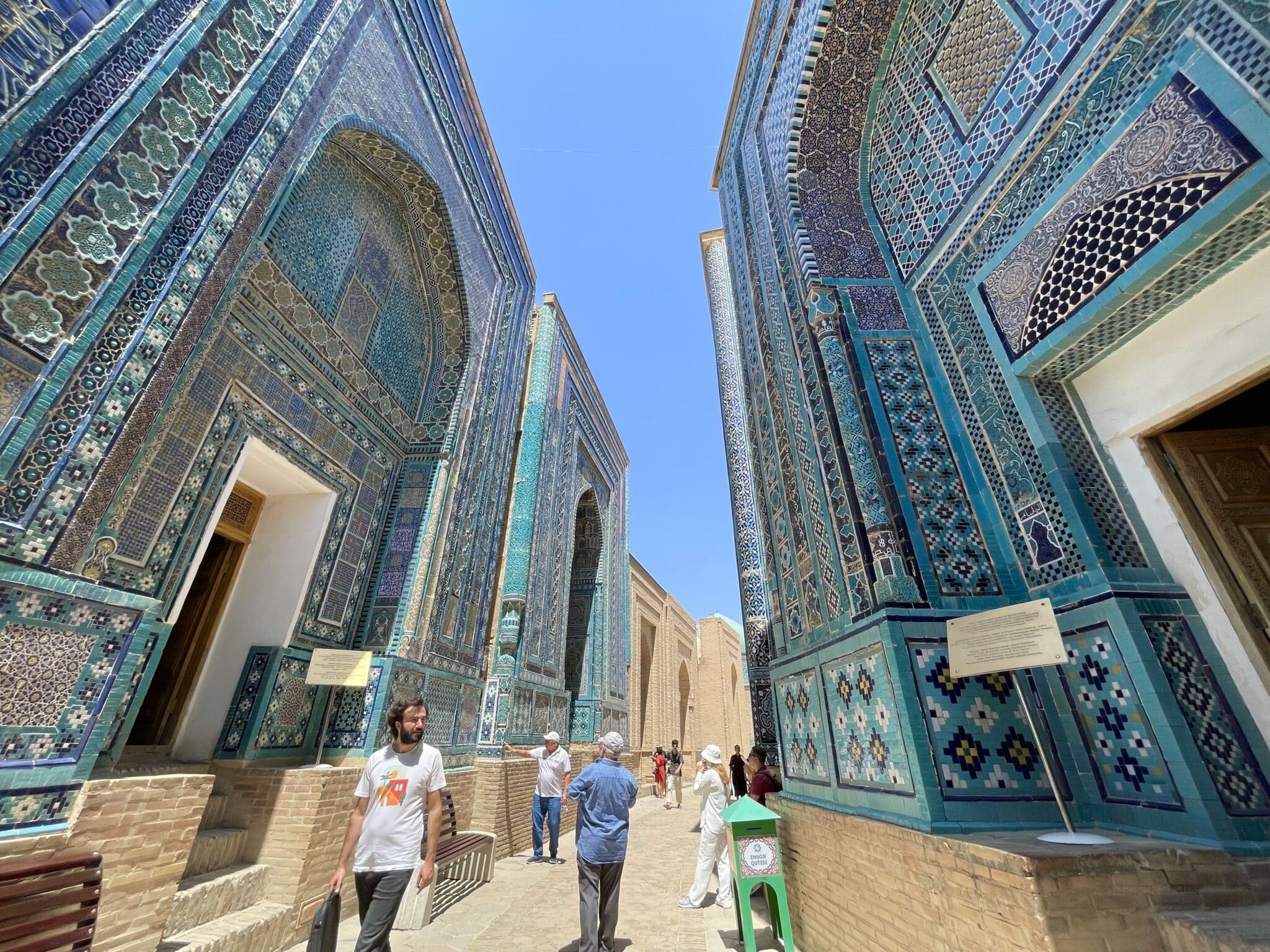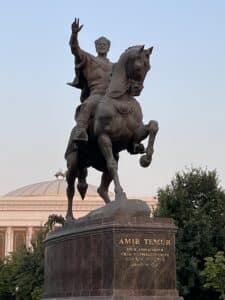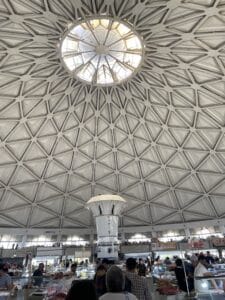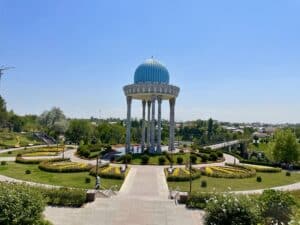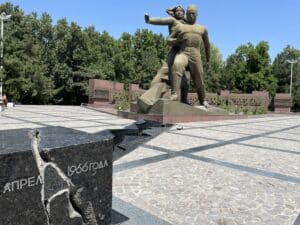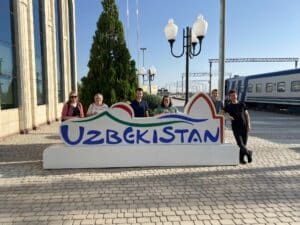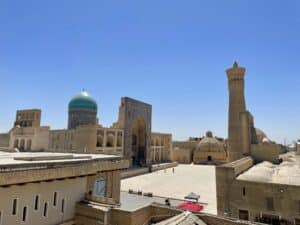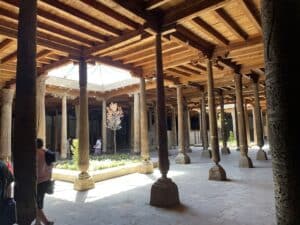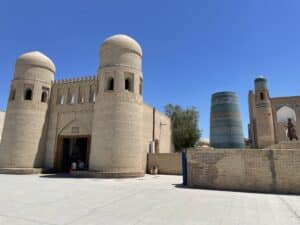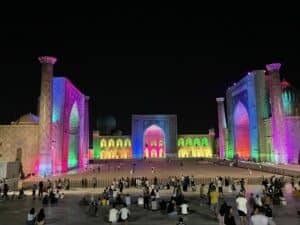After taking my second semester of Russian in the US, my professor shared with me an opportunity to travel to Uzbekistan with SRAS with a study abroad scholarship I had acquired through my university. Traveling to Central Asia for the first time was a life changing opportunity for me and greatly helped me develop my language skills, giving me added practice and confidence.
Getting to know and appreciate the Uzbek culture was a unique experience as well. I had the particular pleasure of eating delicious popular dishes after long walks exploring the different cities. One of the most traditional dishes is plov, this exquisite rice-based dish will vary in taste and portion size depending on what part of the country you’re in. Another very popular dish that you shouldn’t miss out on is lagman; these tasty noodles were my favorite, and I also had the pleasure of trying different variations in different cities.
I enjoyed exploring the several beautiful madrasas and mosques with their jaw-dropping architectural styles and gorgeous colors. Quenching one’s wanderlust is not the only way in which someone could benefit from a trip to this beautiful nation. If you are someone who enjoys learning about history, language, or appreciates connecting with others, then you will most definitely appreciate being surrounded by a multicultural environment with some of the friendliest people in the world. The locals will love getting to know you and it will provide you with a substantial opportunity to engage in cultural exchange.
I decided to sign up for this program primarily because I wanted to practice my Russian language skills with native speakers or people who speak it well as their second language. I considered that this would be an amazing opportunity to engage with the language outside of a classroom setting. Along the way, I encountered people who also wanted to practice their English. Knowing the potential benefit of a language exchange and the importance of consistent practice to improve in each language I was extremely satisfied when I had the opportunity to help others practice their English. I felt welcomed by every single person in the country and felt safe everywhere we went. The Uzbek people are very warm and enjoy sparking conversation to find out more about where you are from and ask if you’re enjoying getting to know about their country and culture. The cultural exchange opportunities are great.
Exploring the different cities in Uzbekistan was a great introduction to the history of the country and the general outlook of Central Asia. We started in the country’s beautiful capital of Tashkent. One of the first places we visited was The Memorial of the Victims of Repression, where we remembered the Uzbeks who were executed by Stalin during the Soviet era. We saw the Monument of Courage, dedicated to the victims of the earthquake that destroyed the city in 1966, and afterwards we took the metro and contemplated its beautiful Soviet design based on local culture and dedicated to local historical figures. We traveled to the city of Khiva where we witnessed the breathtaking, almost 2,000-year-old palace where the kings of Khiva used to reside. While visiting the stunning city of Bukhara, I was mesmerized by the craftsmanship of the local artisans, with their handmade one-of-a-kind ceramics, rugs, and carefully crafted silk garments. Choosing what I wanted to buy was no easy chore, but I ultimately felt captivated by a hand-painted chessboard for myself and an array of ceramic bowls and silk scarves as souvenirs for my friends and family.
There is no better way to bring a little piece of Uzbekistan back with you, then through these handcrafted, traditional artifacts, made by the same friendly people with whom you shared an unforgettable language and cultural exchange.
Even though my exposure to the Russian language was brief I think the immersion helped me improve my grammar and everyday vocabulary. I’m excited to feel that one day I’ll be able to have fluent conversations in the language so that I can get to know people from a wide variety of backgrounds. Learning from the rich history and culture of Uzbekistan has also motivated me to read more about the history of Central Asia and seek classes on the subject. Traveling in this region inspired me to eventually study some of the Turkic languages spoken in the surrounding countries. Even though Russian is useful to communicate with people when visiting former Soviet republics, I’ve noticed that people greatly appreciate when you speak to them in their native language; due to this, I would highly recommend anyone visiting Uzbekistan to learn some basic “please and thank-you” phrases to communicate with the locals. Once I learned a few and began to use them on my trip, I noticed it brought a smile to many people’s faces to hear me using the words as a sign of respect to them and their ancient culture.

